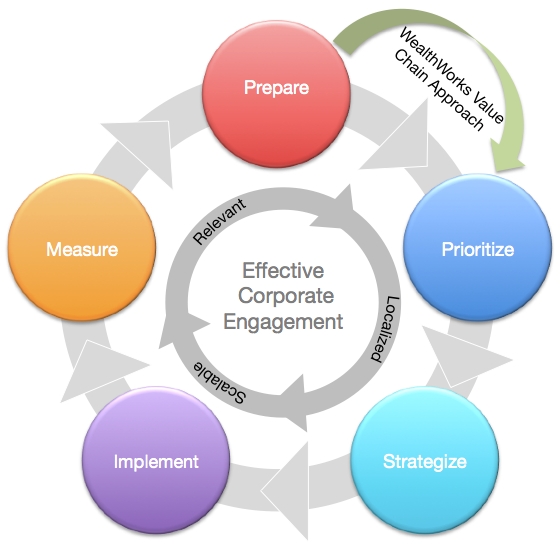In June 2012, The Ford Foundation commissioned the Red Mantra Group to explore the potential for large US companies to adopt a more inclusive approach in their business model and integrate disenfranchised but productive members of communities into mainstream markets as producers and suppliers of various goods and services. Over an eight month period major companies in the agriculture, green housing, biofuels and forestry sectors were interviewed and a first-ever gathering of national players in the agriculture value chain including Walmart, Whole foods, C.H. Robinson, Glory Foods and Nestle came together with farmers, intermediaries and aggregators from the deep South and Central Appalachian regions representing WealthWorks grantees to discuss opportunities for and challenges of small farmer integration.
This toolkit represents the outcome of those multiple discussions and was developed in response to 1) Initial questions posed by WealthWorks grantees of “How do we talk to large companies? Which door do we go through?”, and 2) the issue of market readiness that was overwhelmingly singled out by companies as the primary barrier to the effective integration of smallholder businesses regardless of the value chain or sector they are part of.
As a complement to the Wealth Creation approach, this toolkit was developed to provide practical guidance for producers, service providers and intermediaries to assess when they are ready to engage the private sector within their value chains and how they can effectively do so.
The underlying premise of the toolkit is based on WealthWorks’s main finding that: in the US market, companies become business partners only after they become customers first.
Download toolkit
For the purposes of this toolkit, corporate engagement in this context means working with private sector entities based on shared values that provide benefits to your enterprise and their business. It is important to stress that engaging with the private sector has a greater probability of success if two basic conditions are met:
- Your value chain is ready to engage with them in the marketplace; and,
- Returns on investment (ROI) are realized by both the private sector partner and your value chain.
Although social advancement and economic development may be at the core of your objectives for working with the private sector, the conditions of your interactions with them will be shaped by the market into which you are entering and they are already a main player.
As in every market, the partnership has to be profitable and beneficial for everyone in the value chain if it is to succeed.
Content
- Context for the Toolkit
- Toolkit Framework
- Introduction to Corporate Engagement
- Why We Engage the Private Sector
- The Corporate Engagement Cycle
- Prepare: What is my value proposition?
- Prioritize: Who do I engage with given my specific context?
- Strategize: How do I match our motivations?
- Implement: How do I make initial contact?
- Measure: Was the engagement successful?
- Additional Tips





